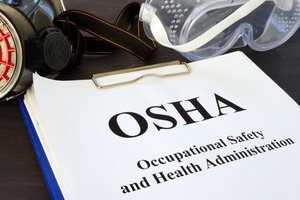 Although it often seems as if the Occupational Safety and Health Act (OSHA) has a ridiculous number of rules and regulations for business owners, complying with those rules can help lower your workers compensation insurance premiums.
Although it often seems as if the Occupational Safety and Health Act (OSHA) has a ridiculous number of rules and regulations for business owners, complying with those rules can help lower your workers compensation insurance premiums.
OSHA’s intention is to protect employees from workplace injuries; therefore, following OSHA’s rules can help create a safer work environment for your employees, which results in fewer injuries and lower WC costs. Plus, not complying with OSHA’s regulations, can result in hefty fines.
We’re here to help you better understand OSHA and its rules and regulations and to help your business comply with those rules and save on workers’ comp costs.
About OSHA
OSHA, established in 1971, is a government agency that is part of the US Department of Labor. Its primary purpose is “to assure safe and healthful working conditions for working men and women by setting and enforcing standards and by providing training, outreach, education and assistance.” OSHA’s rules and regulations cover most private sector employers and their workers, along with some public sector workers.
Since OSHA was established, workplace injuries, illnesses, and deaths have decreased significantly. “Although accurate statistics were not kept at the time, it is estimated that in 1970, around 14,000 workers were killed on the job. That number fell to approximately 4,340 in 2009,” according to OSHA. “At the same time, U.S. employment has almost doubled and now includes over 130 million workers at more than 7.2 million worksites. Since the passage of the OSH Act, the rate of reported serious workplace injuries and illnesses has declined from 11 per 100 workers in 1972 to 3.6 per 100 workers in 2009.”
Fewer workplace injuries and illnesses not only lower commercial insurance premiums, but they also create healthier workplaces and happier employees.
OSHA Employer Responsibilities
As an employer, it is your responsibility to provide a safe workplace that is free from OSHA-recognized hazards. Here are three ways to do that:
- Use color codes, posters, labels, or signs to warn employees of potential hazards.
- Establish and update operating procedures and safety training, and make sure your employees understand them.
- Ensure that employees have safe tools and equipment that is properly maintained.
It is also your responsibility to follow OSHA requirements, which include the following:
- Post the OSHA poster that informs employees of their rights and responsibilities in a prominent location.
- Report all work-related injuries to the nearest OSHA office within eight hours.
- Keep records of all work-related injuries and illnesses and ensure that employees and their representatives can easily obtain employee medical records.
- Post and correct cited OSHA violations.
OSHA also encourages all employers to adopt an Injury and Illness Prevention Program. Click here to learn more about your OSHA responsibilities.
Honoring your OSHA responsibilities and instituting safety programs will create a safer work environment, minimize injuries, and help lower your WC Insurance.
Employee Complaints
There are two main types of complaints employees can file with OSHA against your company as his or her employer:
-
Safety and health complaint
If an employee believes their work environment is unsafe or detrimental to their health, they can file a confidential report with OSHA requesting an inspection of their workplace. -
Protection from retaliation complaint
If an employee who submits a complaint to OSHA feels they have been retaliated against, they can file this type of complaint with OSHA.
Your best defense against both of these complaints is to do your best to create a safe work environment, follow OSHA’s rules and regulations, and keep an open line of communication with your employees.
OSHA Inspections
OSHA can inspect your worksite for any number of reasons including a complaint from an employee; after a severe injury or illness; a referral of a hazard from another federal, state, or local agency, or individual; or if you’re in a high-hazard industry or have experienced a high rate of injuries.
Typically, employers are not notified of an impending inspection in advance; however, understanding the process can take some of the stress out of the experience.
-
Preparation
Before conducting an inspection, OSHA compliance officers research the inspection history of the worksite. -
Opening Conference
The compliance officer will explain why OSHA selected the workplace for inspection and describe the scope of the review, walkaround procedures, employee representation, and employee interviews. Both the employer and employee can have a representative accompany the officer during the inspection. -
Walkaround
The compliance officer and the representatives will then walk through the portions of the workplace covered by the inspection, inspecting for OSHA violations and hazards that could lead to employee injury or illness. -
Closing Conference
After the walkaround, the compliance officer holds a closing conference with the employer and the employee representatives to discuss their findings.
Understanding OSHA’s rules and regulations can help keep your employees safer, reduce the chance of an inspection and potential fines, and reduce workers’ comp insurance costs.
Start Saving on Workers Compensation Insurance Today
To learn how your business can save on workers’ compensation and all other commercial insurance costs, call our experienced independent agents at American Insuring Group a call at (800) 947-1270 or (610) 775-3848 or connect with us online.
Our independence allows us to compare coverage from competing insurance carriers, so you can be confident of receiving the best deal on the right protection for your business in Philadelphia, Reading, Allentown, and far beyond!



 Restaurant Insurance can be complicated
Restaurant Insurance can be complicated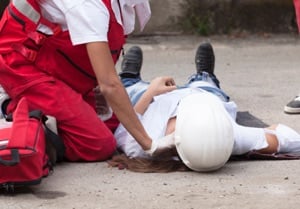 It’s vital that any worker injury and subsequent
It’s vital that any worker injury and subsequent  As a business owner, you wear many hats, and sometimes all of the responsibilities can seem overwhelming.
As a business owner, you wear many hats, and sometimes all of the responsibilities can seem overwhelming. As a business owner or manager, you have enough to worry about – employees, sales, and the list goes on.
As a business owner or manager, you have enough to worry about – employees, sales, and the list goes on.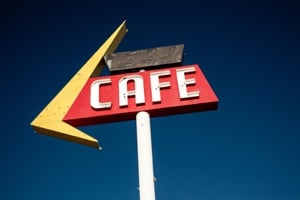 Have you checked your restaurant insurance policy to see if your signage is covered?
Have you checked your restaurant insurance policy to see if your signage is covered?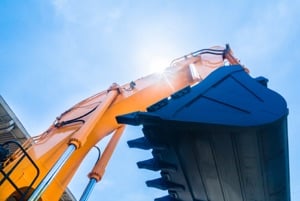
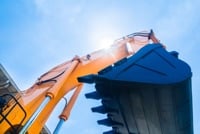 Preventing workplace injuries and deaths should always be your first line of defense. Unfortunately, sometimes despite all of your efforts, accidents do happen. That’s where the right insurance can help protect you and your employees!
Preventing workplace injuries and deaths should always be your first line of defense. Unfortunately, sometimes despite all of your efforts, accidents do happen. That’s where the right insurance can help protect you and your employees!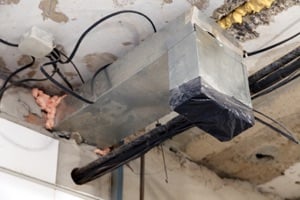 Open flames, cooking oils, cleaning chemicals, and paper products are the perfect ingredients for a fire, and all are found in most restaurants. So, it’s no surprise that fire companies respond to more than 8,000 structure fires at restaurants and bars each year, according to the National Fire Protection Association.
Open flames, cooking oils, cleaning chemicals, and paper products are the perfect ingredients for a fire, and all are found in most restaurants. So, it’s no surprise that fire companies respond to more than 8,000 structure fires at restaurants and bars each year, according to the National Fire Protection Association. 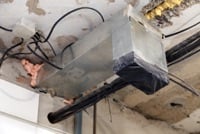 If these measures fail, having the right insurance can help repair the damage.
If these measures fail, having the right insurance can help repair the damage. When you ride the Tube (aka the subway) in London, you’ll probably hear “mind the gap!” as you board your train.
When you ride the Tube (aka the subway) in London, you’ll probably hear “mind the gap!” as you board your train. An insurance company that specializes in
An insurance company that specializes in 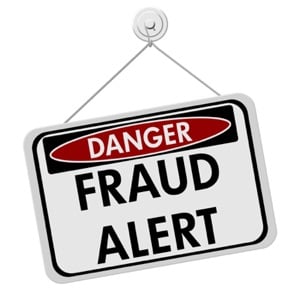 The majority of employees are honest, and the majority of
The majority of employees are honest, and the majority of 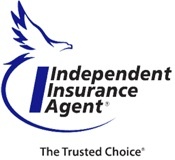 To learn more about preventing and recognizing WC Fraud and ways to save on Workers’ Compensation Insurance, contact the WC specialists at American Insuring Group at
To learn more about preventing and recognizing WC Fraud and ways to save on Workers’ Compensation Insurance, contact the WC specialists at American Insuring Group at 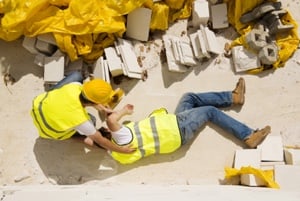 A few weeks ago we began discussing the Occupational Safety and Health Administration’s (OSHA) Fatal Four. These are four safety hazards that account for the majority of all construction worker deaths.
A few weeks ago we began discussing the Occupational Safety and Health Administration’s (OSHA) Fatal Four. These are four safety hazards that account for the majority of all construction worker deaths.



